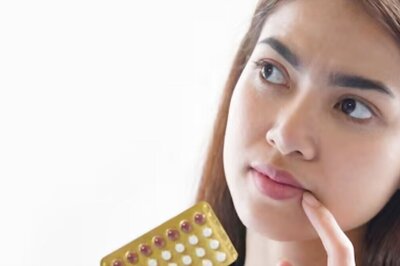
views
New York: When children have sleep apnea or what is called a brief but frequent episodes during the night when their breathing becomes blocked, they may be at risk for more than just a poor night's sleep.
Findings from a new study provide what researchers believe is the first evidence that untreated sleep apnea in children can cause neuronal brain injury.
"This should be a wake-up call to both parents and doctors that undiagnosed or untreated sleep apnea might hurt children's brains," lead author Dr Ann C Halbower, from Johns Hopkins University School of Medicine in Baltimore said.
"This is truly concerning because we saw changes that suggest injury in areas of the brain that house critical cognitive functions, such as attention, learning, and working memory," she added.
Previous reports have tied childhood sleep apnea to deficits in memory, learning, and other mental functions, but until now no studies have demonstrated neuronal injury.
As reported in the online medical journal Public Library of Science Medicine, Dr Halbower's team performed sleep studies and neuropsychological assessments in 19 children with moderate to severe sleep apnea and in a comparison groups of 12 similar but healthy "control" children.
In addition, six of the sleep apnea patients and six matched controls underwent specialised MRI exams to assess the state of brain neurons.
Consistent with earlier research, verbal working memory and verbal fluency were impaired in children with sleep apnea.
Moreover, the average IQ of the sleep apnea group was just 85.8 compared with 101.1 in the control group.
The MRI scans revealed metabolic changes suggesting neuronal injury in two specific areas of the brain in the children with sleep apnea, the investigators report.
"We cannot say with absolute certainty that sleep apnea caused the injury, but what we found is a very strong association between changes in the neurons of the hippocampus and the right frontal cortex and IQ and other cognitive functions," Halbower noted.
Further research is needed to determine if early diagnosis and treatment of sleep apnea can reverse the deficits identified in the study, the team concludes.
Sleep apnea can be treated with pressurized air delivered by a facemask, to keep the airways open while a person sleeps.




















Comments
0 comment